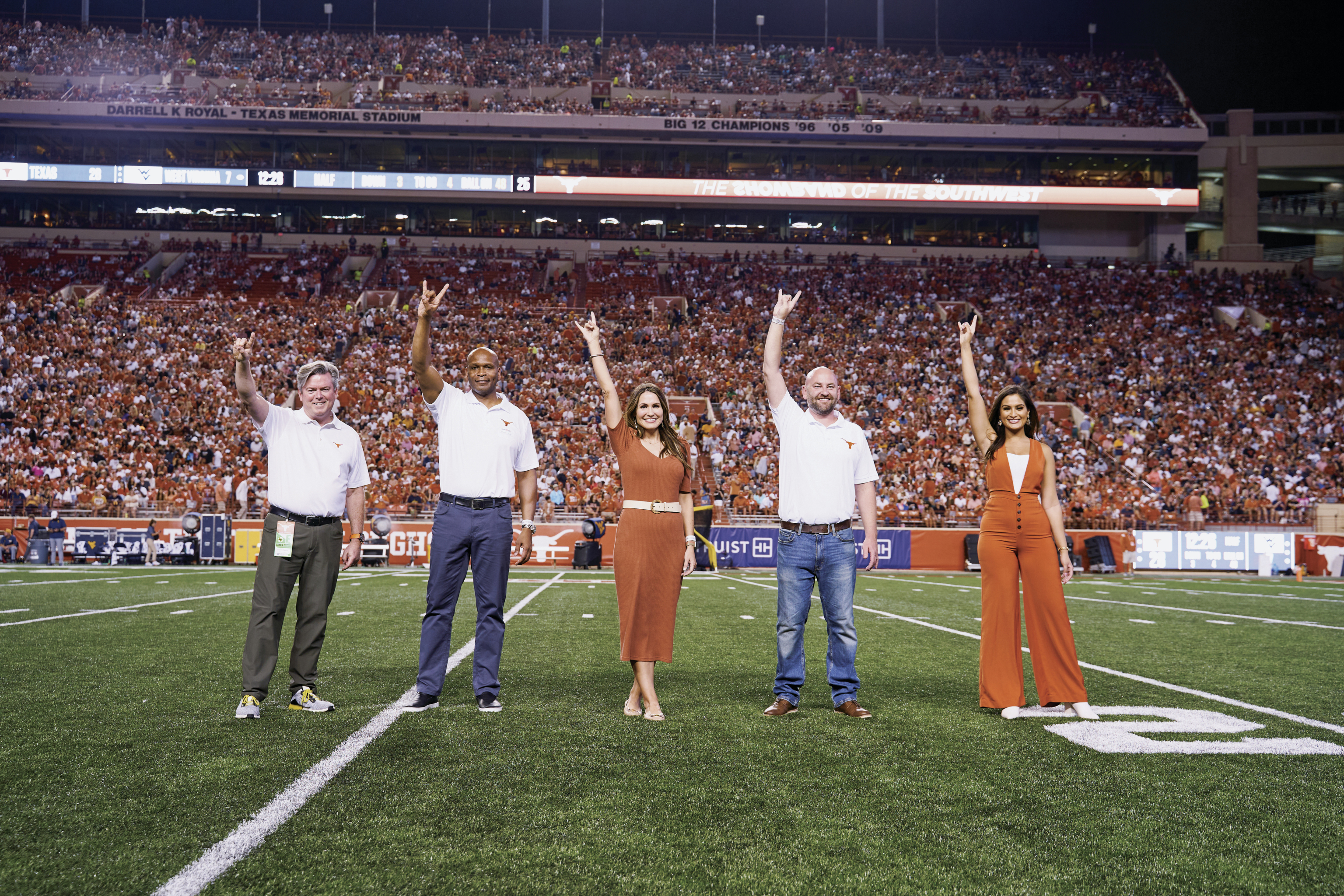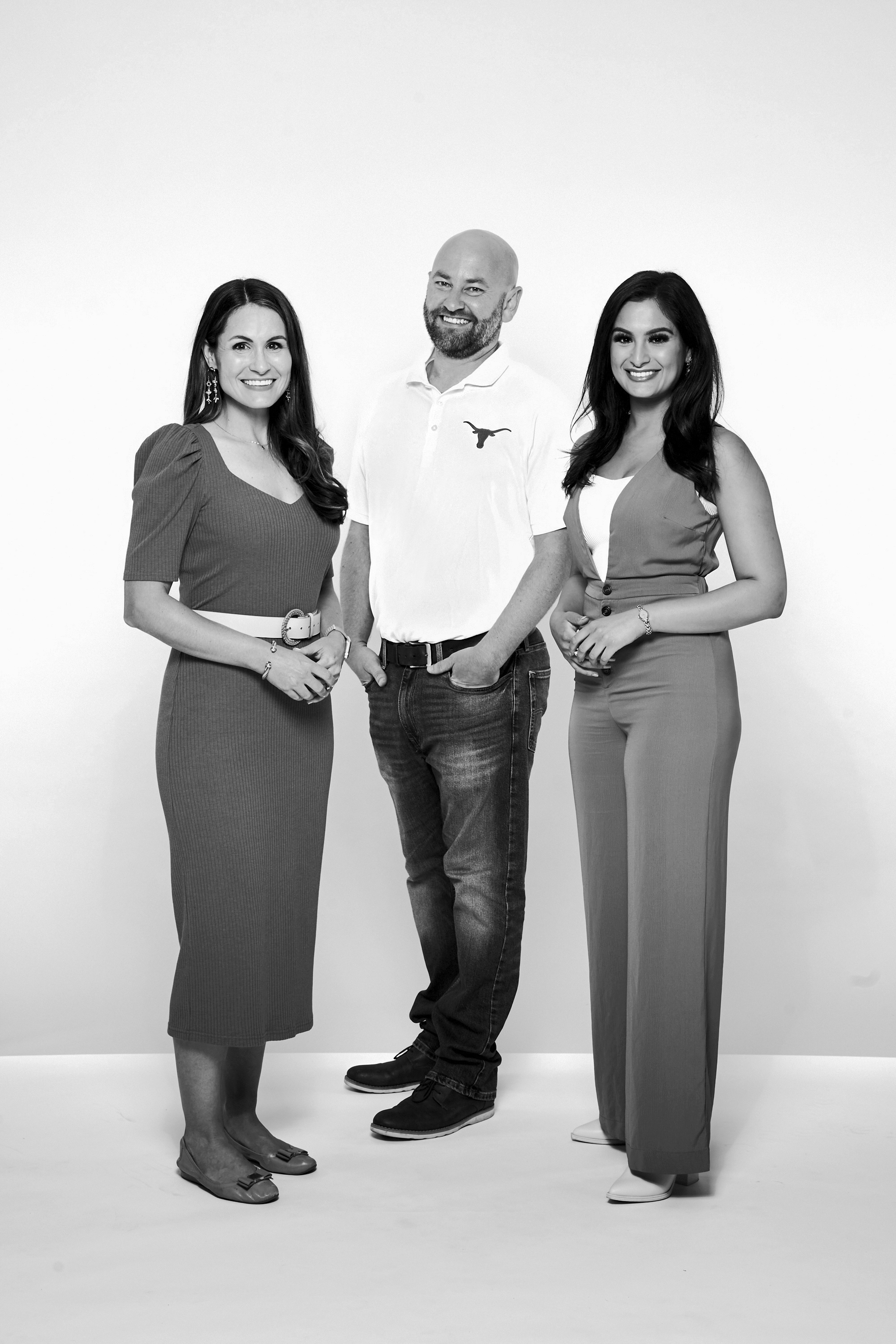Meet the 2022 Class of Outstanding Young Texas Exes

The accolades on the resumes of the latest class of Outstanding Young Texas Exes are, appropriately, outstanding. An author, sports analyst, and former NFL linebacker. The chief of the Johnson Space Center’s flight operations team. A psychologist who leads one of the top autism behavioral facilities in the world. A news anchor and cancer survivor who graduated from UT at the age of 17 (yes, you read that right) and started a nonprofit to help other cancer patients.
The most notable thing about these alumni is that they’ve accomplished all of this so early in their careers—the Outstanding Young Texas Exes honorific is given to alumni 39 years old or younger—and we can’t wait to see what the rest of their careers hold. We caught up with 2022’s honorees, who weighed in on what it means for them to put their best foot forward in all they do, and how UT got them to where they are today.

Sam Acho
BBA ’10, McCombs School of Business, Life Member
Acho is an author, sports analyst, public speaker, humanitarian, and former NFL linebacker. In 2021, he joined ESPN’s comprehensive college football coverage team as a lead studio voice on college football Saturdays on ESPN2.
“I had a friend remind me when I was facing a little bit of doubt, ‘You’ve got the best job in the world. Think about how many people want to be sitting in your seat right now.’ He was right, but I didn’t realize it. So often we get caught up in the things we don’t have, the places we don’t get to go; the opportunities that aren’t in front of us, all the while missing out on the things that are directly before us. When I’m at my best, I’m focusing on what’s in front of me and not getting distracted by menial tasks. Those can wait. God gave me an opportunity and I want to try to maximize it, knowing that only so much is in my control. If I can change my perspective on the situation, usually I’m much better off. On TV, I’m known for my smile. I used to try to hide it, thinking I was ‘too smiley.’ But then I asked a producer for feedback. And what he gave me was gold. ‘Smile more,’ he said. I was shocked. He continued to say that my smile is what sets me apart—and that it makes for good TV! So, I’m learning that putting my best foot forward means being me, having fun, changing my perspective, and enjoying the opportunities I’ve been given.”
Pamela Martin August
BS ’06, Cockrell School of Engineering, Life Member
August is the deputy chief of the Operations Division in the Flight Operations Directorate at Johnson Space Center, which means she plans, runs the required training, and executes the NASA missions that send astronauts to space.
“Responsibility is a guiding principle for me. My desire to do the right thing for the mission, the team, and our organization motivates me day in and day out. That’s really all I try to focus on. I am never satisfied with the status quo and always look for opportunities to improve products or processes around me. I also strive to apply that same focus on continuous improvement to myself and learn from the incredibly talented people around me. To be successful as a NASA flight controller requires a strong technical engineering foundation as well as strong interpersonal skills. The engineering foundation I built at UT was a critical step in achieving my flight controller certification and thus getting to be a part of some incredible milestones in human spaceflight like assembly of the International Space Station.”
Colin Muething
PhD ’16, College of Education
Muething is a professor at Emory University and the project manager of the Intensive Outpatient Program in the Severe Behavior Program at Marcus Autism Center, where he works with children with severe autism. He’s also one of the people who created a licensing program for behavior analysts.
“Since I was a kid, putting my best foot forward has meant being the best at what I do. It was always a goal for me to be at the top of my field, and what that means is working at the best place, getting trained by the best people, and becoming one of those people. At the Marcus Autism Center, we see kids from around the world. We’re one of just a few centers across the world that work with this population and provide treatment, and being known as an expert in that space is a big deal. And beyond just working with kids, I try to serve my profession as well. Behavior analysis is a new profession, so it’s changing constantly, and part of what I want to do is be at the forefront of that change. What I’ve done in Georgia, as part of my role as president of the state organization, is I led the push for licensure for behavior analysts, and we just passed a new law requiring a license for behavior analysts. I learned how to work hard during my time at UT. I saw how hard my professors worked and how much effort they put into what they did, and I had this understanding that that was what I have to do if I want to achieve what I what I want to achieve. The people at UT really exemplified that idea.”

Natasha Verma
BJ ’12, Moody College of Communication, BA ’14, College of Natural Sciences, Life Member
Verma is a news anchor and cancer survivor. She also runs a nonprofit foundation that provides wigs to cancer patients.
“I’m very thoughtful with my time and work. With my television career, I have been all in since day one and fully invested on both the good and bad days, aka the days I felt like giving up. A lot of my work involves researching, reading, absorbing, and getting to know my community, so I harness that curiosity and transfer it to my anchoring and reporting. I spent years and years on the sidelines observing and learning. I am in the business of growth and evolution. I strive to learn something new every day. Additionally, the Verma Foundation is what fuels my purpose in life. After battling cancer and feeling hopeless when I lost my hair during chemotherapy, I told myself I didn’t want a woman or child to feel the way I felt. I am on a mission to keep giving real hair cap wigs to patients, for free, until we find a cure. Since 2017, we have given over 3,000 cap wigs across the world.”
These interviews have been edited and condensed.
CREDITS: Courtesy Sam Acho; Matt Wright-Steel





